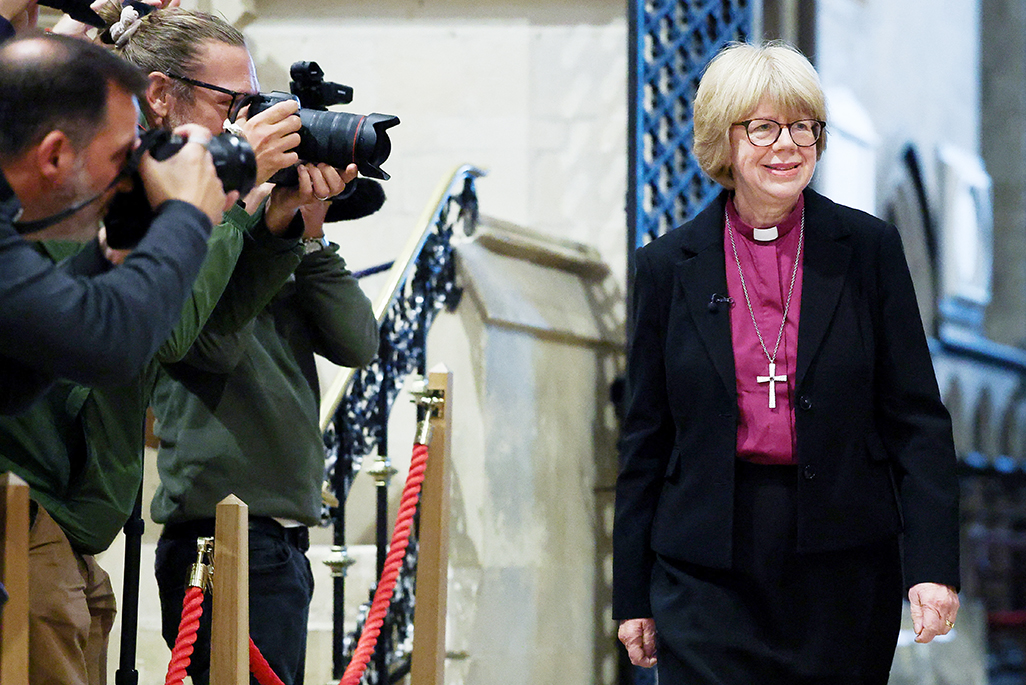Sarah Mullally was named on Friday as the first female Archbishop of Canterbury in the 1,400-year history of the role, but her appointment immediately drew criticism from conservative Anglicans mainly based in Africa who oppose women bishops.
Mullally will not only lead the Church of England but also become the ceremonial head of some 85 million Anglicans worldwide and, like her predecessors, faces a tough challenge in bridging the divide between conservatives, especially in Africa, where homosexuality is outlawed in some countries, and more liberal Western Christians.
Making her first address in Canterbury Cathedral, the 63-year-old former career nurse condemned the sexual abuse scandals and safeguarding issues that have dogged the Church and also antisemitism following an attack on a synagogue in Manchester on Thursday which killed two men.
NEW ARCHBISHOP HAS SUPPORTED LIBERAL CAUSES
GAFCON, a grouping of conservative Anglican churches globally, immediately criticised Mullally’s appointment, saying it showed that the English arm of the Church had “relinquished its authority to lead”.
Addressing those who might object to the appointment of a woman, Mullally said: “I intend to be a shepherd who enables everyone’s ministry and vocation to flourish, whatever our tradition.”
Reforms introduced 11 years ago made it possible for a woman to hold the office, and in being named as the 106th Archbishop of Canterbury, Mullally becomes leader of one of the last British institutions to have been monopolised by men.
Bishop of London since 2018, she has previously championed several liberal causes within the Church, including allowing blessings for same-sex couples in civil partnerships and marriages.
In her address, Mullally spoke of the difficulties of an age which “craves certainty and tribalism” and a country which is wrestling with complex moral and political questions around migration and communities feeling overlooked.
“Mindful of the horrific violence of yesterday’s attack on a synagogue in Manchester, we are witnessing hatred that rises up through fractures across our communities,” she said.
It is the “glory of Christ” that gives her hope in a world which often feels “on the brink”, she added.






Click here to change your cookie preferences